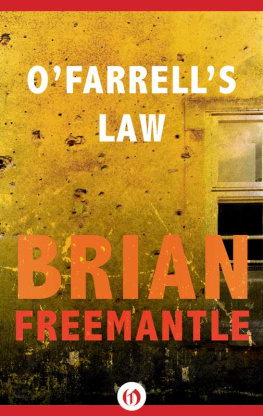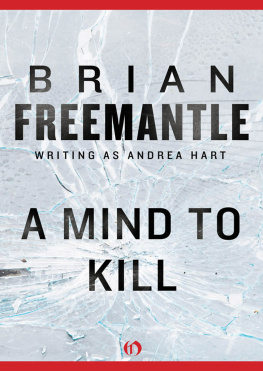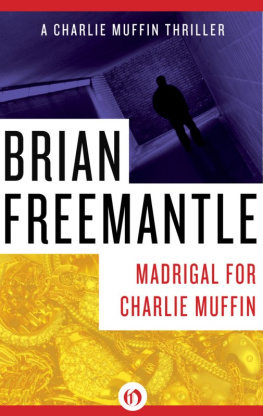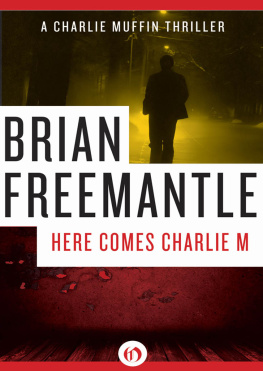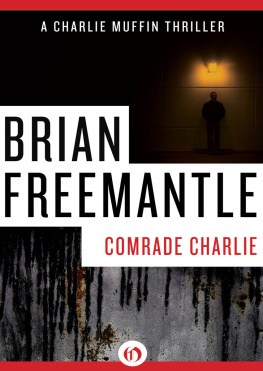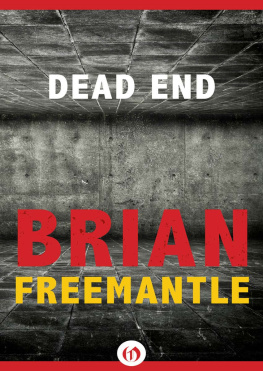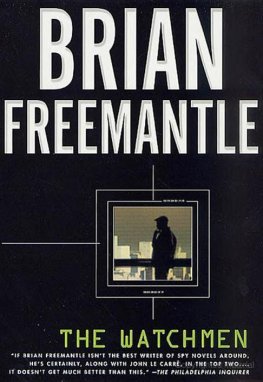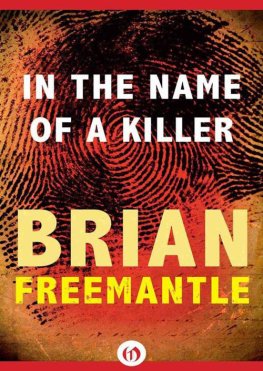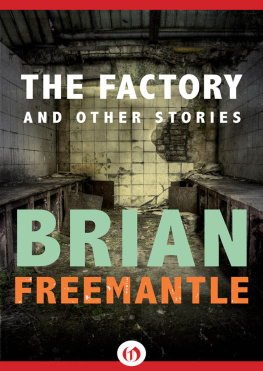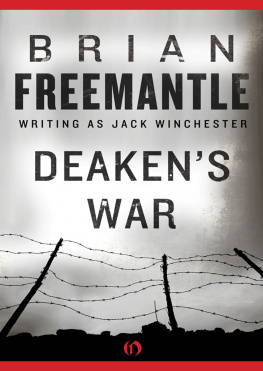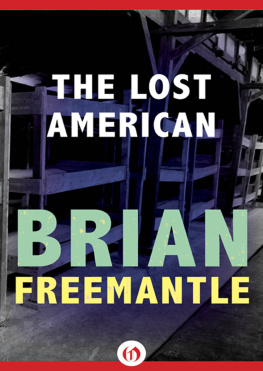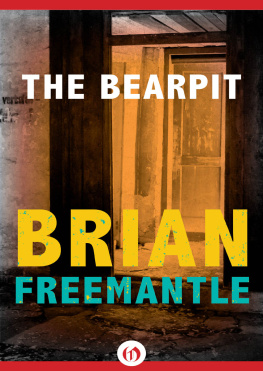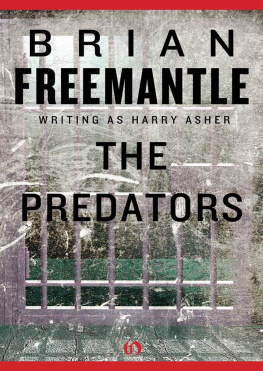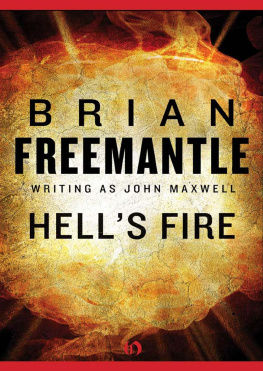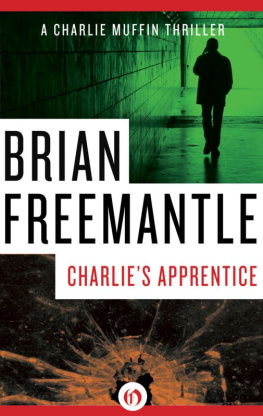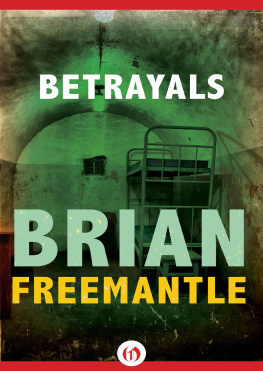Brian Freemantle - OFarrells Law
Here you can read online Brian Freemantle - OFarrells Law full text of the book (entire story) in english for free. Download pdf and epub, get meaning, cover and reviews about this ebook. year: 1993, publisher: Tom Doherty Associates, genre: Detective and thriller. Description of the work, (preface) as well as reviews are available. Best literature library LitArk.com created for fans of good reading and offers a wide selection of genres:
Romance novel
Science fiction
Adventure
Detective
Science
History
Home and family
Prose
Art
Politics
Computer
Non-fiction
Religion
Business
Children
Humor
Choose a favorite category and find really read worthwhile books. Enjoy immersion in the world of imagination, feel the emotions of the characters or learn something new for yourself, make an fascinating discovery.
- Book:OFarrells Law
- Author:
- Publisher:Tom Doherty Associates
- Genre:
- Year:1993
- Rating:5 / 5
- Favourites:Add to favourites
- Your mark:
- 100
- 1
- 2
- 3
- 4
- 5
OFarrells Law: summary, description and annotation
We offer to read an annotation, description, summary or preface (depends on what the author of the book "OFarrells Law" wrote himself). If you haven't found the necessary information about the book — write in the comments, we will try to find it.
OFarrells Law — read online for free the complete book (whole text) full work
Below is the text of the book, divided by pages. System saving the place of the last page read, allows you to conveniently read the book "OFarrells Law" online for free, without having to search again every time where you left off. Put a bookmark, and you can go to the page where you finished reading at any time.
Font size:
Interval:
Bookmark:

OFarrells Law
Brian Freemantle

ONE
E VEN IN the guaranteed security of his Alexandria home, it was instinctive, far beyond any training, for Charles OFarrell to awaken as he did: eyes closed, breathing deeply as if he were still asleep, listening first. Always essential to listen first, to be sure. Around him the house remained early-morning quiet, the only sound the soft, bubbled breathing of Jill, still genuinely slumbering beside him. Safe then. OFarrell opened his eyes but did not move his head. It wasnt necessary for the initial ritual.
The bedroom cabinet with the photograph was directly in his line of sight. Except when he was on sudden overseas assignments, when it would have been unthinkable to risk such a prized possession, the photograph was invariably OFarrells first sight in this unmoving, safety-checking moment of awakening. Just as at night, usually while Jill was making dinner, he went to the den to look over the cracked and yellowing newspaper cuttings of the archive he was creating. With just one martini, of course, the one a day he allowed himself. Well, normally just one. Sometimes two. Rarely more.
The way the newsprint was deteriorating worried him, like the fading of the photograph from brown sepia into pale pink worried him. It would be easy enough to get the cuttings copied, although a lot of the special feelingthe impression, somehow, of being therewould go if they were transferred onto sterile, hard, modern paper. Essential that he do it, though, if he were to preserve what he had so far managed to assemble. Hed need advice on how to save the picture. Copied again, he supposed. OFarrell was even more reluctant to do that: there would definitely be a loss of atmosphere if the treasured image were transferred to some glossy, up-to-the-minute print.
There was no detail in that stiffly posed souvenir of frontier America that OFarrell did not know intimately, could not have traced, if hed wanted to, with his eyes shut. Sometimes, on those foreign assignments, that was precisely how OFarrell did conjure into his mind the picture of his great-grandfather, allowing his imagination to soften the sharp outlines, even fantasizing the squeak of ungreased wagon wheels and the snorts of impatient horses andonly very occasionallythe snap of a shot.
OFarrell knew there would have been such snapping echoes (why did a pistol shot never sound the way it was supposed to sound, always an inconsequential pop instead of a life-taking blast?) because the cuttings from the Scott City journal that at the moment formed the basis of his archive recorded six shoot-outs from which the man had emerged the victor. There would have been much more shooting, of course; the six had been reported because people had died, but OFarrell knew there would have been other confrontations. Had to have been. Law was rare and resented in Kansas then, and anyone attempting to enforce it was more likely to be challenged than to be obeyed.
Objectively, the aged photograph hardly showed a man to be obeyed. There was nothing in the background of the photographic studio to provide a proper comparison, but the man appeared to be quite shortmaybe just a little shorter than OFarrell himselfand slightly built, like OFarrell again. The stature was accentuated in the picture by the long-barreled Colt. It was holstered high and tight against his great-grandfathers waist, a necessary tool of his trade, not low-slung and thonged from the bottom around his leg, like those in preposterous Hollywood portrayals. Properly carried, as it was in the photograph, it appeared altogether too. large and heavily out of proportion. But for the gun, it would have been impossible to guess what job the man held. Hed obviously dressed for the portrait: the trousers of his waistcoated, high-buttoned suit worn over his boots, tie tightly knotted into a hard-starched collar, hat squarely, almost comically perched on his head. Why, wondered OFarrell, hadnt his great-grandfather worn his marshals badge? It was a recurring question that OFarrell had never resolved. He doubted his late fathers suggestion that it had been a retirement photograph. Currently the last of the fragile cuttings, an obituary of his great-grandfathers peaceful deathin bedat the age of seventy-six, also reported his quitting as a lawman when he was sixty. And he certainly didnt look sixty in the photograph; somewhere between forty-five and fifty. Maybe forty-six. My age, thought OFarrell; he liked to think so. Personal comparisons were very important.
OFarrell moved at last, turning away from the bedside cabinet to look at Jill. She shifted slightly with his movement but didnt awake. A skein of hair, hairdresser-blonded now because of the hint of grayness, strayed across her forehead. Very gently OFarrell reached out to push it back, but paused with his hand in front of himself. No shake, he saw, gratefully. Well, hardly; no more than the minimal twitch to be expected from his lying in such an awkward position; wouldnt be there at all when he got up. Continuing the gesture, OFarrell succeeded in rearranging his wifes hair without disturbing her. Worrying over nothing, he told himself. Which was the problem. Why was this feeling of uncertainly constantly with him? And growing?
He eased cautiously from the bed, wanting Jill to sleep on, but hesitated before the cabinet. It was definitely impossible without the gun to imagine his ancestor as a law man. Even more difficult to believe him to have been someone to be obeyed. Or capable of shooting another man. But then it was never possible to judge from appearances whether one man could kill another.
Charles OFarrell knew that better than most.
Until the official opening by President Kennedy in 1961 of its headquarters at Langley, just off the Washington Memorial Parkway, Americas Central Intelligence Agency was housed piecemeal at 2430 E Street NW, in barracks alongside the Reflecting Pool and in wooden buildings behind the Heurich Brewery. Not everything was brought conveniently to one location by that 1961 presidential ceremony, however.
The security needs of the Agencys most secret divisions actually dictated that they should remain outside its identifiable headquarters, and its most secret division of all was kept in Washington, on two floors of an office building just off Lafayette Park, to maintain a physical distance between the CIA, a recognized agency of the U.S. government, and a part of that agency determinedly unrecognized. Its existence was known only to a very few men. Required under oath to admit that the Agency possessed such a facilityat congressional inquiries, like those, for instance, that shattered the morale of the CIA in the mid-1970sthose men would have lied, careless of perjury, because their questioners were insufficiently cleared at the required level to receive such intelligence. The division, created after those mid-seventies congressional embarrassments, fit the phrase that became public during those hearings. It was plausible deniability.
The division came under the hidden authority of the CIAs Plans Directorate. It was run by two men who worked on completely equal terms, although George Petty was accorded the title of director, with Donald Erickson defined as deputy. Each was a third-generation American who believed implicitly in the correctness and the morality of what they did, an essential mental attitude for every constantly monitored employee.
Its OFarrells medical today, Erickson said. He was a tall, spare man with hair so thin and fair that he appeared practically bald. By standing at the window of their fifth-floor office suite, he was just able to look across the park to the White House he considered himself to be protecting. It was a favorite stance and an unshakable conviction.
Font size:
Interval:
Bookmark:
Similar books «OFarrells Law»
Look at similar books to OFarrells Law. We have selected literature similar in name and meaning in the hope of providing readers with more options to find new, interesting, not yet read works.
Discussion, reviews of the book OFarrells Law and just readers' own opinions. Leave your comments, write what you think about the work, its meaning or the main characters. Specify what exactly you liked and what you didn't like, and why you think so.

